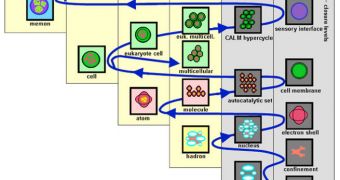For centuries, biologists have promoted their field of study as the one investigating life. The very word means the “science of life,” but, thus far, no clear definition of what the actual word “life” means and implies has been found. One of the main difficulties preventing experts from coming to an agreement is the list of various criteria each of them take into consideration when creating their definitions. But the differences between them imply that there will always be exceptions to the rule, as in creatures that should be alive, but are not, or vice-versa, Space reports.
For example, worker bees do not reproduce, and under some definitions, they should not be alive. Nevertheless they are, and this is made obvious by simply looking at them. The level of activity an organism exhibits is also not a clear indicator of whether it is alive or not. When faced with incredibly harsh conditions, bacteria simply turn themselves down, become inactive until the proper conditions are for them to reactivate again, and resume living. A biologist from the Wageningen University now proposes a completely new approach to defining precisely what life is.
“People have focused on facultative properties like breathing or moving, and then say if we combine a few of those properties we are close to having defined life, but there are always exceptions. What [my idea] does is it turns the whole thing completely upside down. I focus on the minimal absolutely necessary properties and I don't care about any facultative properties,” expert Gerard Jagers op Akkerhuis says. According to his idea, life would be defined in relation to an “operator,” a basic unit. This concept is not new, and it can be applied to signify both living things – such as organisms – and non-living things, including atoms and molecules.
The main definition of an operator would be an entity that is the result of a self-organization process going on in the environment. The result is a unit that stands out from everything else around it. The expert believes that any operator more complex than a single cells should qualify as life. “From the level of the cellular operator and up, everything is a living operator, is life. I define life by means of operators. And I have the operators ranked by their level of complexity,” the scientist adds. “I think the operator hierarchy offers a very fundamental, new way of defining life. It may, however, require some time before other people start recognizing its value,” he concludes.

 14 DAY TRIAL //
14 DAY TRIAL //